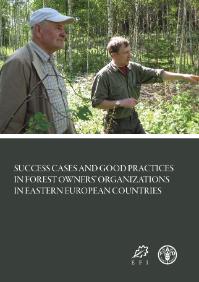Focal point
Location
The Food and Agriculture Organization of the United Nations leads international efforts to defeat hunger. Serving both developed and developing countries, FAO acts as a neutral forum where all nations meet as equals to negotiate agreements and debate policy. FAO is also a source of knowledge and information. We help developing countries and countries in transition modernize and improve agriculture, forestry and fisheries practices and ensure good nutrition for all. Since our founding in 1945, we have focused special attention on developing rural areas, home to 70 percent of the world's poor and hungry people.
Members:
Resources
Displaying 371 - 375 of 5073The Bahamas and FAO
The Bahamas became an FAO member state in 1975. Cooperation has focused on strategic development and increased competitiveness of the country’s agriculture and fisheries sector, with FAO interventions comprising policy and legislative support, technical development projects and rehabilitation and emergency assistance. As a flat and small island developing state (SIDS), the Bahamas is very vulnerable to the impacts of climate change, which makes resilience building an important element of cooperation today.
Small homegarden plots and sustainable livelihoods for the poor
The paper examines ways in which the poor can use small amounts of land to establish homegardens to advance important livelihood objectives. The paper considers the potential benefits of homegardens in light of policy, financial and cultural constraints, and provides a framework for planners to consider whether (and which) homegarden interventions are appropriate for improving livelihoods of the poor.
Examining access to natural resources and linkages to sustainable livelihoods
Since the adoption of a new Constitution in 1990 and the signing of the peace accord in 1992, Mozambique has witnessed a period of rapid regulatory change in respect to the rules that govern the ownership and rights of use of a range of natural resources. There are newlaws and regulations in place that govern access to and beneficial use of land, forest and mineral resources and a new environmental framework law.
The Bahamas and FAO
The Bahamas became an FAO member state in 1975. Cooperation has focused on strategic development and increased competitiveness of the country’s agriculture and fisheries sector, with FAO interventions comprising policy and legislative support, technical development projects and rehabilitation and emergency assistance. As a flat and small island developing state (SIDS), the Bahamas is very vulnerable to the impacts of climate change, which makes resilience building an important element of cooperation today.










